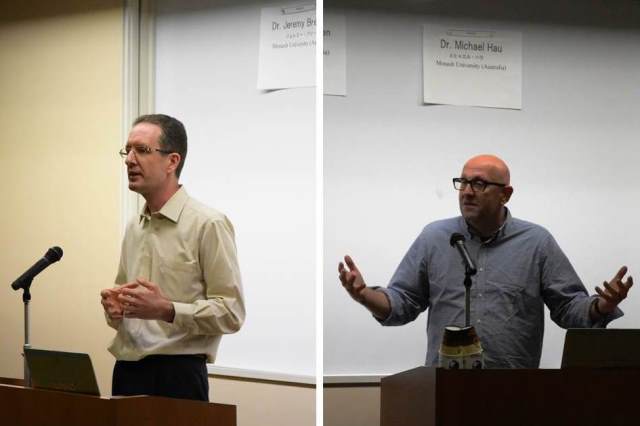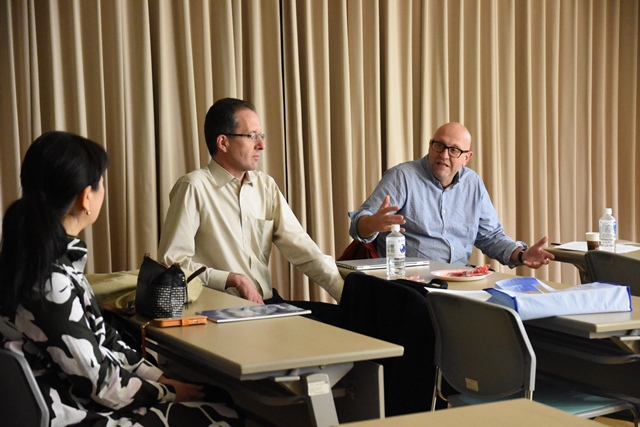豪研究者2人が「日独の戦後のメリトクラシー」を語る 秦教授のセミナー

▲講演するジェレミー・ブリーデン教授(左)とミヒャエル・ハウ氏
このセミナーは第二次世界大戦後の西ドイツと日本のメリトクラシーの進展についての内容で、 〝才能〟の同定と創造を企図した教育改革による政治的遺産を戦後の民主主義社会がいかに産み出したのかに焦点を当てたました。これは20世紀の中期から後半のメリトクラシーの世界史を探る研究プロジェクトでもあります。 秦由美子(外国語学部・教授)

▲質問に答えるジェレミー・ブリーデン教授(中央)とミヒャエル・ハウ氏(右)
Yumiko Hada (Professor)
Research Seminar named “The Meritocratic Moment: Talent and Education Reform in Post-war West Germany and Japan” was held at Kansaigaidai University, co-sponsored by the Intercultural Research Institute (IRI) and the Research Institute for Japan, the UK and Europe (RIJUE). Speakers were Dr. Michael Hau and Professor Jeremy Breaden from Monash University (Australia).
This seminar explores the development of meritocratic ideas in West Germany and Japan after World War II. It sheds light on the how post-war democratic societies built political legitimacy through education reforms directed to the identification and cultivation of ‘talent’. This is part of a research project aiming to develop a global history of meritocracy in the mid to late 20th century.
| 一覧を見る |